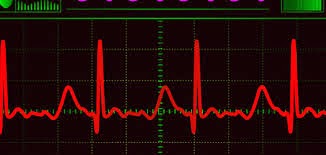Continuing Education
Get Cardiology related Articles, Journals, Videos and more details at Radcliffe Cardiology site.
Online Cardiovascular Disease
Go to read Online Cardiovascular Disease relarted articles via atrial fibrillation association afa.
Cardiology Mayo Clinic
Cardiology Mayo Clinic provides informative info about cardiology at RC site.
Cardiovascular Research Foundation
Free and register PDF and journales available at here!!!
Cardiology Video
Arrange seminar and online video conference by expert cardiologist, Visit at site.
Sunday 29 June 2014
Optimal imaging for interventional cardiology
Advances in the design and technology of medical devices and delivery systems, coupled with demand for alternative non-surgical therapies for common medical problems, cardiology diseases and heart failure, have led to an increase in the volume, variety and complexity of non-coronary cardiac interventional procedures performed.
The greater complexity of these newer procedures, particularly those involving heart valve intervention, necessitates more sophisticated and exacting imaging techniques, both to facilitate appropriate case selection and to provide procedural guidance, thus increasing the likelihood of successful outcome. Contemporary advances in echocardiography imaging techniques ensure these modalities are well suited to the imaging requirements of this exciting and expanding field of interventional cardiology. Realtime 3D imaging, made possible by the development of a
full matrix transducer capable of acquiring pyramidal-shaped ultrasound data sets, has been a major advance in transthoracic echocardiography (TTE) for examining patients with suspected heart failure. Progress can also be seen in the development of transducers and systems capable of
single-beat 3D acquisitions, thus eradicating stitching artefacts, are now available. Miniaturisation of this 3D technology has enabled coupling with a transoesophageal echocardiography (TEE) probe providing high-quality 3D TEE images for patients with cardiology diseases.
The ideal echocardiography modality would provide high-quality, realtime 3D imaging in a format easily comprehended by the interventional cardiologist, with minimal
interference to the flow of the interventional procedure being performed. It would be safe, minimally invasive and widely available at low cost. Currently, no one echocardiography imaging modality fulfils all these criteria. Each has relative advantages and disadvantages compared with the others. Therefore, selection of the optimal imaging modality for any given interventional cardiac procedure must take into account both the specific requirements of the procedure and the relative strengths and weaknesses of the imaging modality to ensure the greatest likelihood of successful outcome.
Tuesday 24 June 2014
The future for cardiology stem cells
Myocardial infarction (MI) is the leading cause of death among people in the industrialised world and will become the leading cause of death in the world in 2020, according to the World Health Organization (WHO).
Whilst remarkable medical advances have been made during the second half of the 20th Century to increase patient survival, new treatments for patients with cardiovascular disease from acute MI and ischaemic cardiomyopathies to bifurcation disease are needed.
Scientists believe that stem cells and their by-products could be the next major advance in the treatment of patients with cardiac
disease. It is hoped that cardiac stem cell research may also one day reduce the need for coronary angioplasty in CAD including Bifurcation Disease.
Currently, basic research scientists and clinicians worldwide are investigating human embryonic stem cells, skeletal stem cells (myoblasts), adult bone marrow stem cells, cardiology stem cells and human umbilical cord stem cells for the treatment of patients with MIs and ischaemic cardiomyopathies.
Whilst important progress is occurring in the use of stem cells for cardiac repair, the most optimal stem cell(s) for treatment of patients with infarcted myocardium is yet to be determined.
At present, there are no widely used stem cell therapies other than bone marrow transplant. Research is underway to develop various sources for cardiac stem cells and to apply them to heart disease and other conditions.
Cardiology stem cell therapy offers great hope and is the topic of much discussion. Anyone wanting to know more about this exciting area can attend the cardiology conference Cell Therapy for Cardiovascular Disease. The cardiology conference is designed for a wide ranging audience from clinicians and clinical investigators, interventional cardiologists, noninvasive cardiologists, cardiac surgeons, research associates, basic science investigators (cell and molecular
biologists) to members of public.













